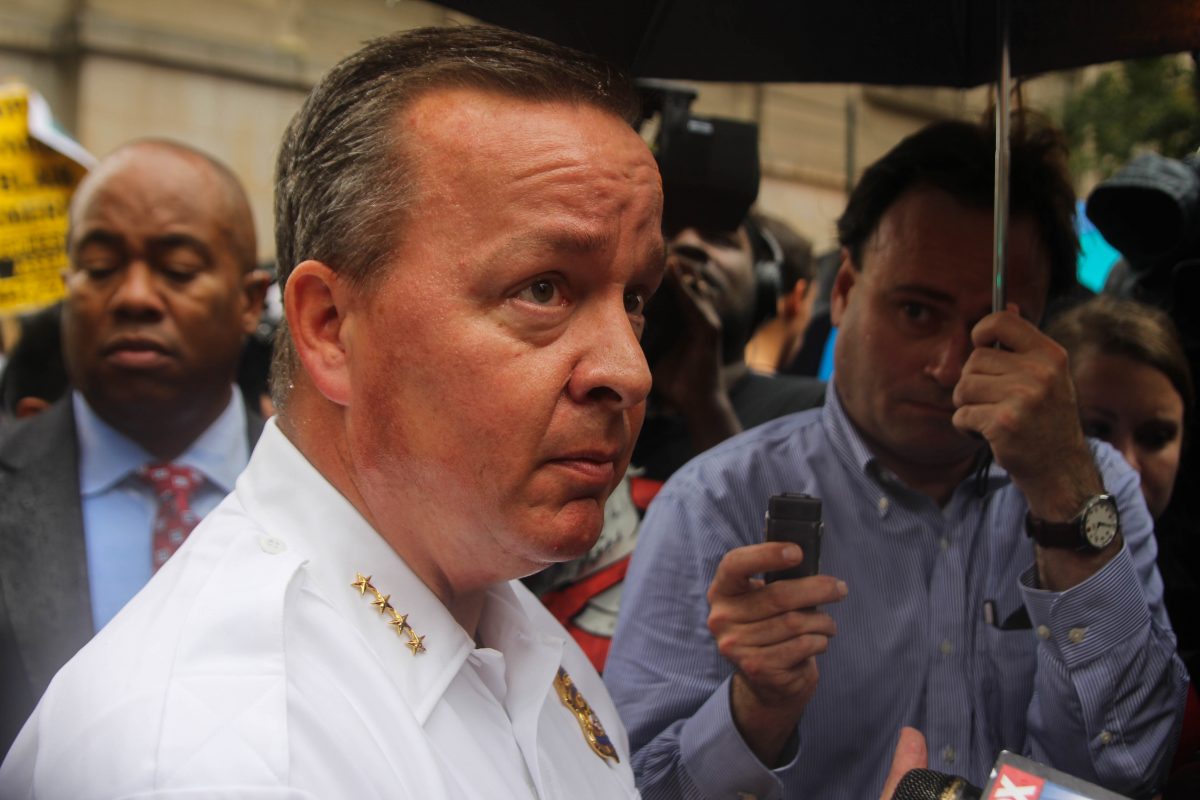
A poll released this week from Goucher College shows that a vast majority of Marylanders are following the events surrounding the death of 25-year-old Freddie Gray from injuries suffered while in police custody in April. Overall, 53 percent of respondents indicated they’ve been paying “a lot” of attention to the events around Gray’s death in Baltimore City, with another 29 percent indicating they’ve been paying “some attention.”
Only 5 percent said they were paying “no attention at all” to events around Gray’s death. New motion hearings have been set for Tuesday and Wednesday in the trials of six police officers charged in connection to Gray’s death.
Perhaps more revealing, state residents were also asked about aspects of policing in their communities; with African-American and white Marylanders expressing significantly different views on the issues.
For example, barely one-quarter (27 percent) of African-Americans believe that all races are treated equally by police in their community while more than twice as many white Marylanders (60 percent) believe that all races are treated equally by police. Similarly, less than half of African-Americans believe that police are held accountable for misconduct (47 percent) while more than three-quarters (77 percent) of white Marylanders believe police are held accountable for misconduct.
Following a public safety forum in the Western District Monday night, interim police commissioner Kevin Davis did not dispute the polling data—or that it reflects real and compelling differences in terms of police relations with African-American communities.
“Those numbers don’t surprise me. Not at all,” Davis said. “It will take new and innovative community policing and transparency to turn those numbers around. We have to be willing to be our own harshest critic.”
Interestingly, Marvin “Doc” Cheatham, president of the Matthew Henson Neighborhood Association and former head of the Baltimore branch of the NAACP, said the size of the disparity in the views of police between African-Americans and white Marylanders, were a revelation to him.
“The difference, the wide range, it surprises me,” Cheatham said. “It has to be in the relationships between people, communities, and police. I live in West Baltimore and we’ve tried to reach out to police, but there’s a poor relationship that exists. We don’t even have someone from the Western District on the civilian police review board.”
“As the trials of the officers in the Freddie Gray case begin, the nation’s attention will again turn to Baltimore City,” said Mileah Kromer, director of the Sarah T. Hughes Field Politics Center, in a statement. “The stark racial differences in our results suggest that regardless of the outcomes of the six trials, political and community leaders in Maryland will need to continue working to develop solutions to address these divisions in police-community relations.”
From the Goucher Poll:
49 percent of all Marylanders agree that “people of all races receive equal treatment by the police in your community.”
- Among African-Americans, 27 percent agree.
- Among whites, 60 percent agree.
66 percent of Marylanders agree that “police in your community are held accountable for misconduct.”
- Among African-Americans, 47 percent agree.
- Among whites, 77 percent agree.
61 percent of Marylanders agree that “the racial makeup of a community’s police department should be similar to the racial makeup of the people living in that community.”
- Among African-Americans, 66 percent agree.
- Among whites, 57 percent agree.
51 percent of Marylanders agree that “police officers should be required to live in the communities in which they serve.”
- Among African-Americans, 59 percent agree.
- Among whites, 44 percent agree.
77 percent of Marylanders agree that “in general, police officers are respected in your community.”
- Among African-Americans, 69 percent agree.
- Among whites, 81 percent agree
*Conducted from Sept. 26-30, the Goucher Poll of 636 Maryland residents includes a probable 3.9 percent plus/minus sampling error from the actual population distribution for any given survey question.
